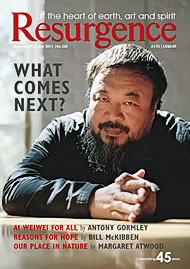This is a radical book. In fact, it is a book to re-radicalise those of us who perhaps over the years have lost some of our edge! I write this as someone who has been greatly inspired by Manfred Max-Neef’s work over a 20-year period. When I first met him, in 1990, he was already like an Old Testament prophet, a huge personal and intellectual presence in the room. As a, then, young man I was simply blown away, and the talk he gave changed the way I saw the world.
All the passion that he brought on that evening is here in this book, written with physicist Philip B. Smith, whom I only met on one occasion, when he told me he was writing with Manfred. This news delighted me, as Manfred has not been a prolific writer; in fact this is the first book with his name on for over 25 years. But Philip, who has sadly since passed away, has done a great job at creating with Manfred a compact classic.
In fact, having a physicist poke holes in economics theory – with its oversimplification of human behaviour in a desire to be like the ‘hard’ physical sciences – is all the more fun and indeed very powerful. His deconstruction of Bentham and Utilitarianism in chapter five is worth the price of the book alone.
In some ways the book goes over ground that those of us who have critiqued economics are already familiar with, but there is something about the authors’ directness that genuinely does ‘unmask’ economics. What do they suggest is behind the mask? A system that uses quasi-scientific theory and language to reinforce and protect the power and wealth of the rich.
Their treatise moves easily from philosophy to physics, from economics to environment and argues passionately for more compassion. They also identify what they consider to be the foundations of a new economics, which are articulations of the very core of our work here at nef:
• The economy is to serve the people, not the people the economy
• Development is about people, not objects
• Growth is not the same as development, and development does not necessarily require growth
• No economy is possible in the absence of eco-system services
• The economy is a sub-system of a larger and finite system, the biosphere; hence permanent growth is impossible.
Towards the end of the book there is an important plea for a teaching of ‘non-toxic economics’ in universities, but aside from this there is not much in the way of ‘solutions’.
This is not really a weakness of the book; it is simply not that type of book. Try as they might, the authors are simply not very optimistic about the future; their very last sentence captures this eloquently: “We may still discover that a better world is possible.”
Clearly with some of the work we do at nef we seek to propose ‘solutions’ and create positive visions of a better world; the Happy Planet Index and The Great Transition are just two examples. However, all of us who know the data on global poverty, social injustice, environmental degradation and climate change often struggle to feel very optimistic.
But I think the struggle to be realistically optimistic is still worthwhile, and this book has reminded me of the radical changes we need to make to create a better world, a world that we all want really.
So carry on – we need a million minds working on this stuff!







